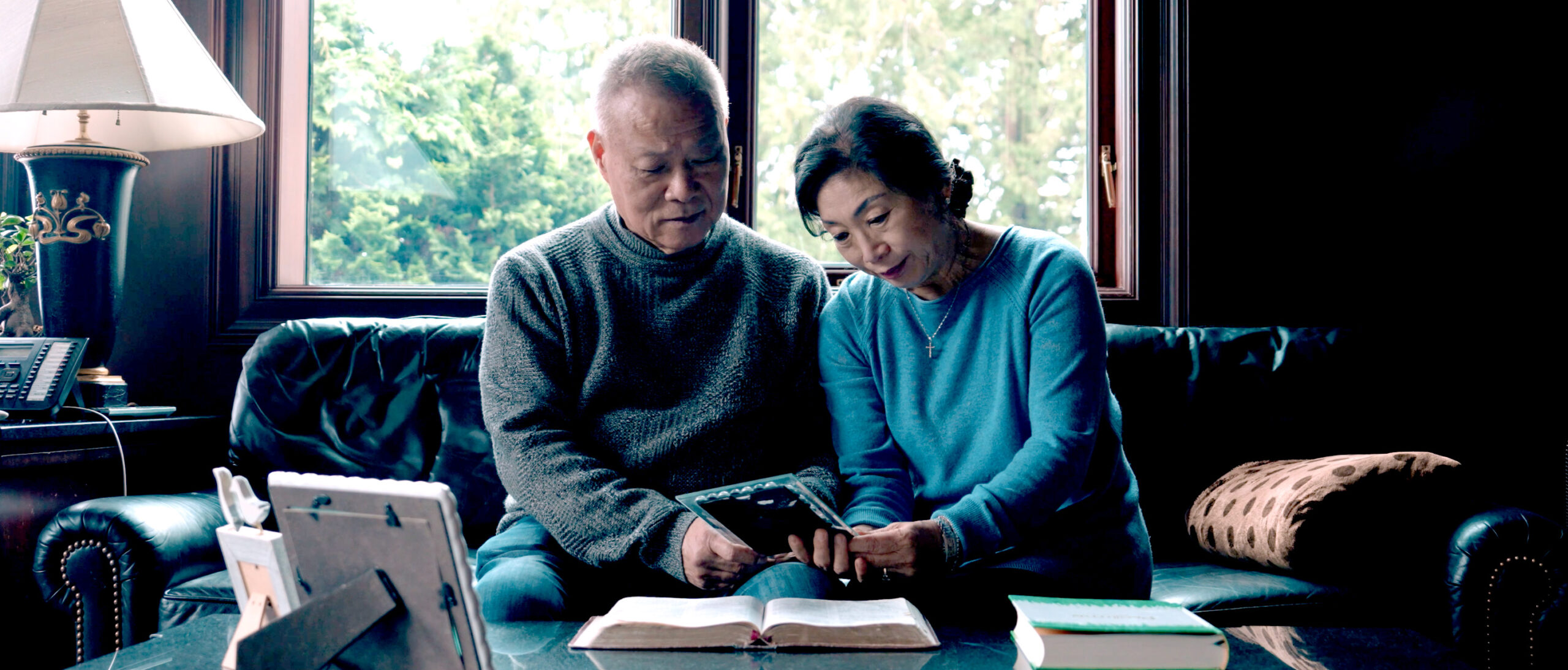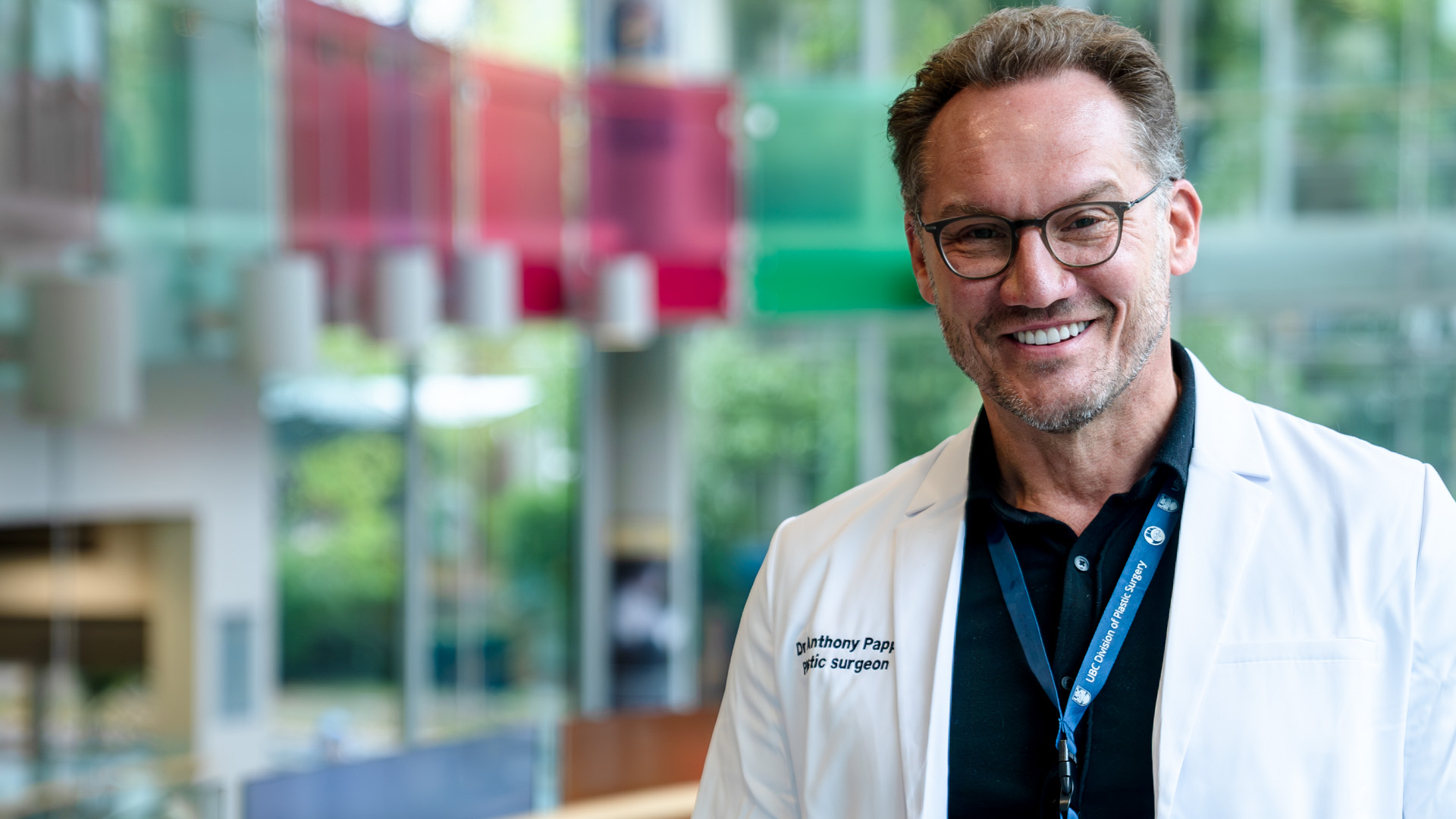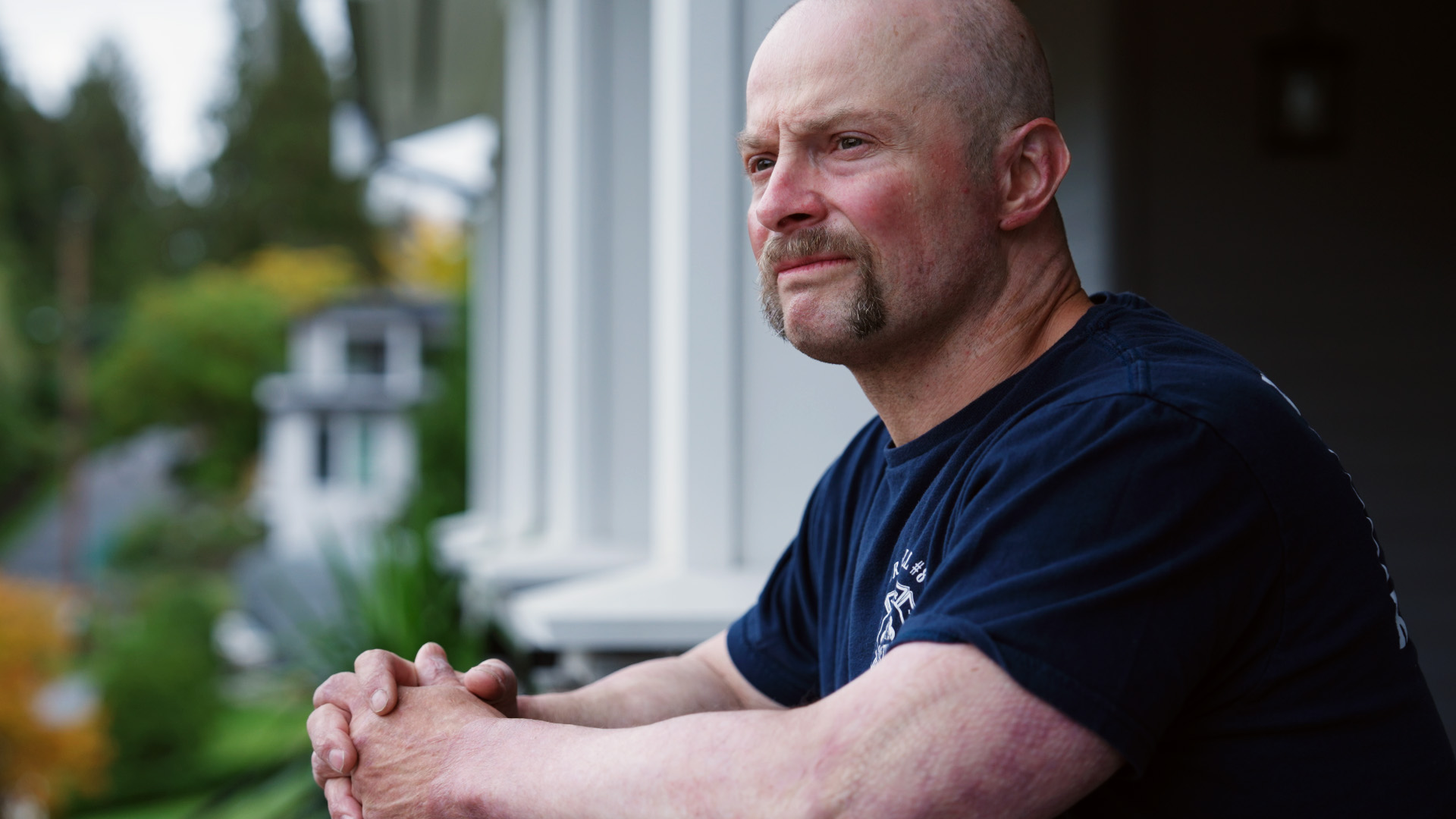It’s just a toothache. Or at least that’s what Joyce thought at the time. The pain would come and go so she wasn’t overly concerned, but Joyce mentioned it to her dentist who thought it was an infection and she was eventually referred to an oral surgeon.
Due to the pandemic, Joyce wouldn’t be able to see the specialist for almost two years. What she learned turned her world upside-down.
“I had a tumour in my jaw that was growing so aggressively it was ‘eating’ my left jawbone,” says Joyce. “The bone had become so thin that I had to go on a puree diet immediately just to avoid further damage. I was… terrified.”
Joyce was suffering from a rare bone tumour called an ameloblastoma. It needed to be removed or it would soon leave Joyce unable to eat or speak. Without proper care, it could become fatal.
“The more I read about the surgery, more worried I became, because apparently after the surgery, you might need to rehabilitate your jaw,” says Joyce. “As in, learn how to talk and learn how to chew and learn how to smile again. That scared me. Cause I was just like, what? I’m not going to be able to do something that’s very basic anymore?”
This is when she came to meet Dr. Prisman at VGH, who walked her through exactly what needed to be done, and to help put her fears at rest.
“This was on the jaw which would mean it would grow so large it would prevent her possibly from speaking, eating, and it could deform her face. It’s not a tumour you can live with by any means,” says Dr. Prisman. “Now Joyce was remarkably healthy and she has her whole life ahead of her. To me, this meant I wanted to optimize the procedure to reduce any impact it may have on the rest of her life. One of my areas of passions is to optimize outcomes for patients.”
The importance of planning
Dr. Prisman had to do a “full section” removal due to the location of the tumour. This means he had to remove the entire area of jawbone and replace it.
“The complexity with the jawbone is how much we use it every day,” he says. “There’s constant motion and pressure. You can’t just throw a titanium plate in because the bone will not fuse properly and then you’re dealing with a whole other problem.”
Instead, Dr. Prisman needed more bone.
“We only have one jawbone, so we took her her shoulder bone, specifically the scapula,” says Dr. Prisman. “And then we virtually designed what needed to happen in order to optimize the outcome.”
Using CT scans and modelling of Joyce’s bone structure, Dr. Prisman utilized simulation software he and his team designed. It ran hundreds of virtual surgeries on Joyce before landing on the most optimal one for Dr. Prisman to perform.
This pre-surgical preparation is key for improving outcomes, as it reduces the amount of time a patient is in surgery by hours. This reduces inflammation, soreness, chance of infection, and increases the likelihood of surgical success.
“Joyce’s surgery went textbook,” says Dr. Prisman. “She had zero complications.”
Today, Joyce is happily moving forward in her life. She has a burgeoning business in calligraphy for weddings and events and is even looking to get married herself in the near-future.
“I’m so grateful for Dr. Prisman,” she says. “He saved my life.”
Honour your angel
Each holiday season VGH & UBC Hospital Foundation asks our community to ‘Honour Your Angel’ by making a donation in honour of a loved one or health care provider. These gifts help to transform health care and save lives at VGH, UBC Hospital and GF Strong Rehabilitation Centre, including Joyce.
Donor support purchases critical equipment, funds high-impact research projects, and advances patient care to deliver B.C.’s best, most specialized adult health care.
To learn more or make a donation, please visit our Angel Campaign page.
Share this:




